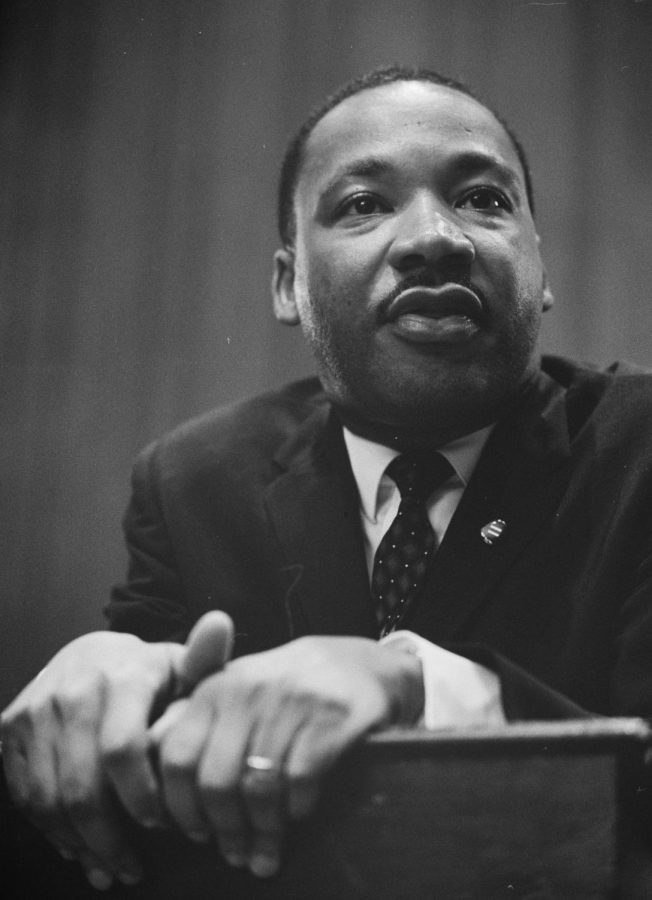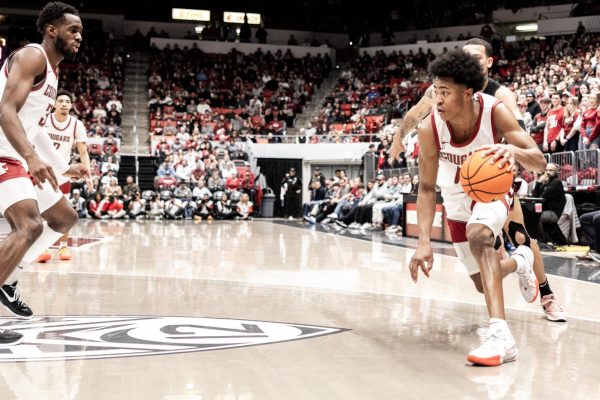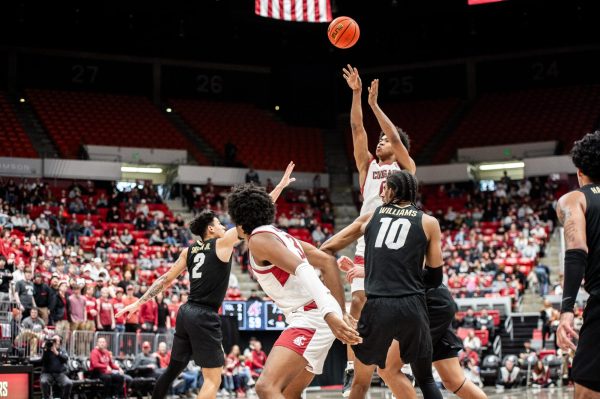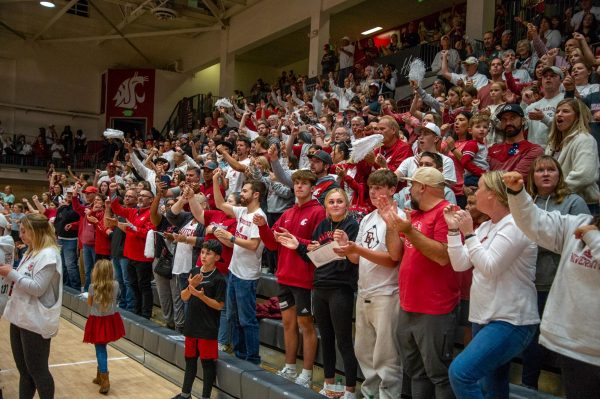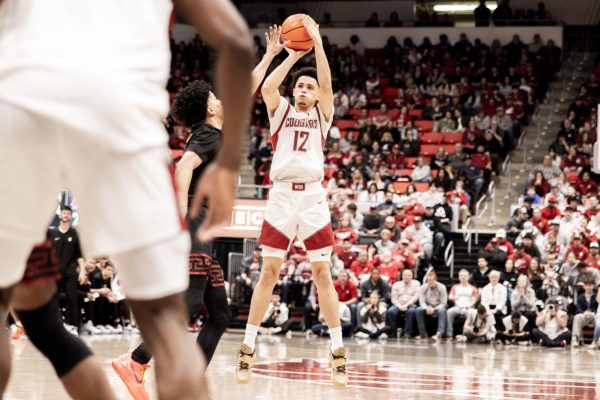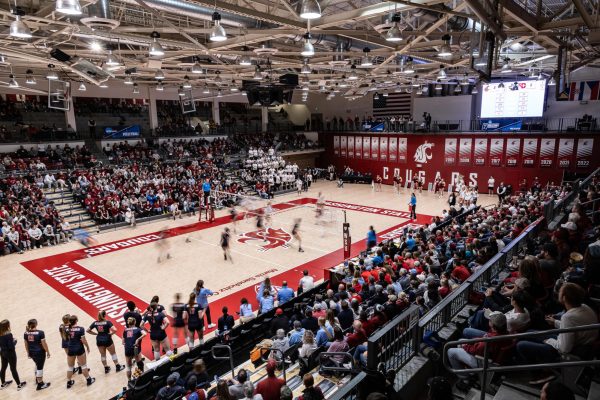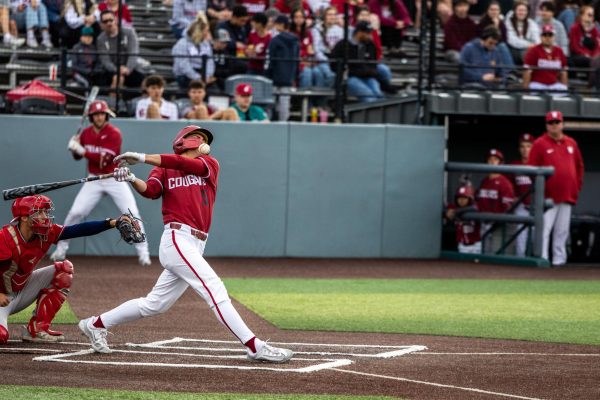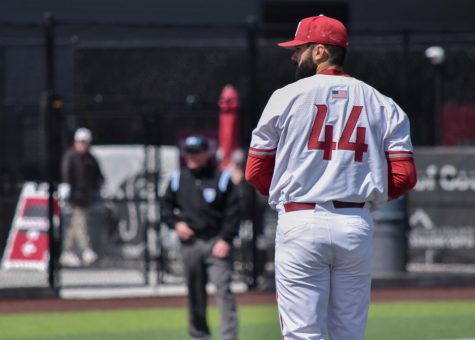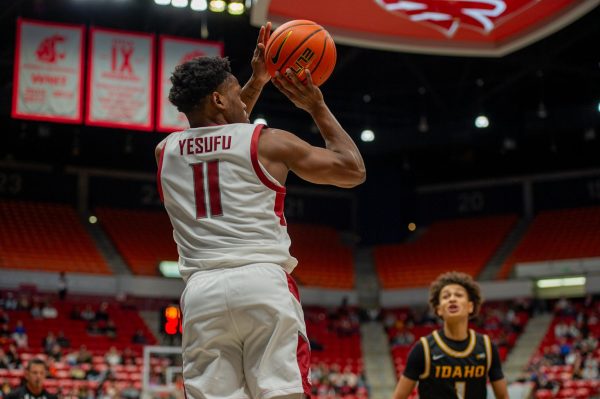How MLK shaped modern-day athletics
MLK’s legacy trickles deep into sports
Trikosko, Marion S., Public domain, via Wikimedia Commons
Martin Luther King leaning on a lectern, 1964.
January 19, 2023
Martin Luther King Jr.’s legacy and sacrifices are well-documented, but his contributions to modern-day sports are often overlooked.
King was always someone who understood the impact and importance of sports. King was someone who understood the importance of sports as something far deeper than entertainment value: sports impacted the political and social world, something he was aware of.
Having witnessed the breaking of MLB’s color barrier by Jackie Robinson in 1947, he also witnessed social justice issues and social change being directly communicated through the medium of sports.
Robinson was not the only athlete King was linked to; the athlete he had the most profound and documented impact with was Muhammad Ali. At first, their relationship was far from friendly, as Ali was a member of the separatist Nation of Islam, a direct opposition to the ongoing civil rights movement that King led.
However, despite the rough beginnings, the two quickly became friends with the mutual goal of ending the oppression of minority groups. King used Ali as an example and quoted the athlete multiple times.
“Like Muhammad Ali puts it, we are all Black and brown and poor victims of the same system of oppression,” King said about the Vietnam War in 1967 at Riverside Church, New York City.
Other athletes credited King for inspiring them to fight for positive change with their platform. Before his assassination, he encouraged athletes to protest the 1968 Olympics in the fight for racial justice.
When other athletes, such as Hank Aaron, came to King for advice on what they could do to aid in the fight for social change, he had simple instructions. Athletes who prove Black excellence in on the field of play prove they belong.
“I wish that I had a lot more time for sports. You people in sports have done a great job in giving the Negro equal rights and you have achieved that without bloodshed.” King said in 1963 to Bob Addie of the Washington Post after the March on Washington.
Although it has been several decades since his assassination, his legacy and impact are felt every day through a protest in sports. Several figureheads in sports attempt to take the advice of the late King and spread his message with their play. One of those figureheads is Doc Rivers, former Los Angeles Clippers head coach and current Philadelphia 76ers coach. “I try to talk to my players about [MLK Day] every year. When we really have made it as a country, it should just be called ‘American History’ [instead of Black history],” Rivers said in 2016.
King is also connected to the ongoing Black Lives Matter movement that has been a staple of sports over nearly the past decade. It gained traction with former NFL quarterback Colin Kaepernick’s kneeling and the movement spread into nearly every major professional and amateur sports league.
While all the public can do is speculate on whether or not King would take a knee with Kaepernick, it is safe to assume that he would not only take a knee but actively support his actions.
His actions are comparable to Robinson’s when he broke the color barrier, someone King was clearly very fond of.
“[Robinson is] a pilgrim that walked in the lonesome byways toward the high road of freedom. He was a sit-inner before sit-ins, a freedom rider before freedom rides,” King said in 1962 in New York City to the Amsterdam News.
While not an athlete himself, King advocated and supported athletes using their platforms for change and always supported the athletes of his time knowing the impact they could have on the nation at large.

